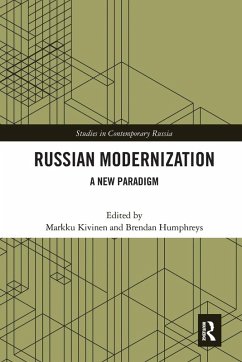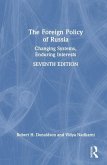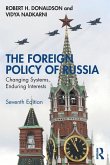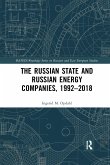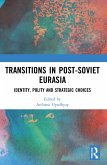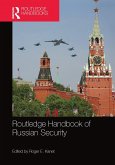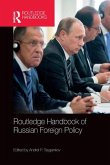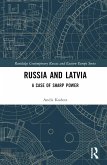Building on an original interpretation of social theory and an interdisciplinary approach, this book creates a new paradigm in the Russian studies. Taking a fresh view of Russia's multiple experiences of modernization, it seeks to explain the Putin era in a completely new way.
This book explores the paradoxical and contradictory aspects of Russia, analyzing the energy-dependent economy and hybrid political regime, but also religion, welfare, and culture, and their often complex interrelations. Written by a community of both Western and Russian scholars, this book re-affirms the value of social science when confronting a society that has undergone enormous and costly systematic changes. The Russian elites see modernization narrowly as economic and technological competitiveness. The contributors to this volume see contemporary Russia facing a series of antinomies, which are macro-level dilemmas that cannot be abolished, either by philosophical mediation or by immediate political decisions. As such, they are the tension fields that constitute choices for various competing agencies.
This book will be of interest to scholars and students of Russian studies, transition studies, sociology, social policy, political science, energy policy, cultural studies, and stratification studies. Professionals involved in energy, ecology, and security policy will also find this publication a rich source.
This book explores the paradoxical and contradictory aspects of Russia, analyzing the energy-dependent economy and hybrid political regime, but also religion, welfare, and culture, and their often complex interrelations. Written by a community of both Western and Russian scholars, this book re-affirms the value of social science when confronting a society that has undergone enormous and costly systematic changes. The Russian elites see modernization narrowly as economic and technological competitiveness. The contributors to this volume see contemporary Russia facing a series of antinomies, which are macro-level dilemmas that cannot be abolished, either by philosophical mediation or by immediate political decisions. As such, they are the tension fields that constitute choices for various competing agencies.
This book will be of interest to scholars and students of Russian studies, transition studies, sociology, social policy, political science, energy policy, cultural studies, and stratification studies. Professionals involved in energy, ecology, and security policy will also find this publication a rich source.
"The culmination of an ambitious and extraordinarily productive eight-year multi-author study of the various dimensions of Russian modernisation, the outlines of a new paradigm are presented here, combining wide-ranging interdisciplinary investigations, social theory and the best of area studies. Containing a wealth of theoretical insight and empirical analysis by an impressive range of specialists, this pioneering volume applies the concept of modernisation while modernising the concept itself." - Richard Sakwa, University of Kent, UK.
"A beacon of cool, perceptive empirical analyses and open-ended theorization in a field infested with fixed ideas and ideologies. Illuminating." - Göran Therborn, emeritus, University of Cambridge, UK.
"A beacon of cool, perceptive empirical analyses and open-ended theorization in a field infested with fixed ideas and ideologies. Illuminating." - Göran Therborn, emeritus, University of Cambridge, UK.
